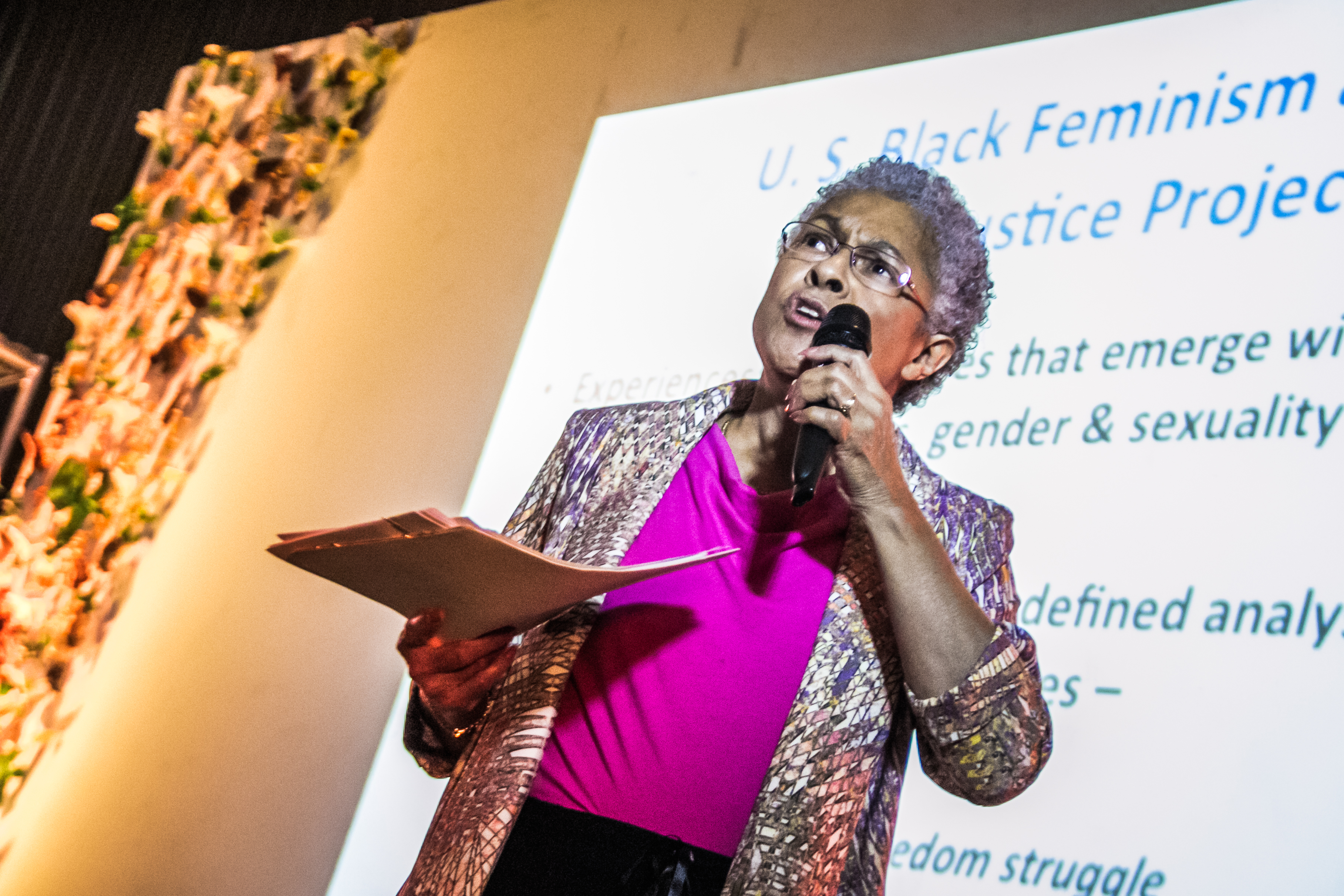Feminist Theorist Thursdays: Patricia Hill Collins

Image courtesy of Festival Latinidades via Flickr
Patricia Hill Collins is an acclaimed social theorist known for her intersectional approach to the sociologies of feminism, Black liberation, and nationalism. Collins draws from her own experiences with discrimination, which she encountered head on as a Black working-class student who attended white middle-class schools. She notes that her marginalized position in economically privileged, white spaces forced her to endure “daily assaults designed to teach [her] that being an African American, working-class woman made [her] lesser than those who were not.”
Despite her hostile experiences in educational institutions, Collins has thrived in her field, reaching critical acclaim for her works on intersectional sociological epistemology. Collins is currently a Distinguished University Professor of Sociology at the University of Maryland, College Park, and was elected the first African American woman president of the American Sociological Association in 2008.
Collins’s first book, “Black Feminist Thought,” was published in 1990 and examines the works of various Black feminist thinkers, including Alice Walker, Audre Lorde, Angela Davis, and bell hooks. Collins offers an interpretive framework through which to evaluate Black feminist theory, synthesizing these forms of knowledge production to form a “collective Black women’s consciousness“ in the face of oppression. Self-definition is essential in the development of this consciousness, requiring that Black women reject the dominant culture’s assumptions about their identity and eradicate internalized forms of oppression.
In her book, Collins coins the phrase “outsider-within” to describe the condition of Black women lost in the gaps left by feminist and Black thought projects. Excluded from feminisms rooted in whiteness and race theories that center on Black male experiences, Black women are left behind by movements that claim to seek their liberation. However, Collins argues that the unique position of Black women within a matrix of domination enables them to form critical perspectives, which wield a powerful transformative potential for emancipatory social movements.
“Black Sexual Politics” (2004) is another one of Collins’s seminal works, in which she outlines the intersections of racism and heterosexism in Black America. Collins emphasizes the necessity of an inclusive Black liberation movement, arguing that the emancipation of Black America will never be complete without the liberation of women and LGBTQIA individuals in the Black community. She warns against the use of a single-axis framework in assessing the effects of racism, as this simplistic analysis masks the unique ways in which racism manifests along gendered, sexed, and classed lines. Furthermore, “Black Sexual Politics” calls for a widening of sexual norms in the Black community, so that LGBTQIA individuals may be liberated from stifling sexual politics, and issues such as the spread of HIV/AIDS can be more openly discussed.
Collins has also developed a theory of “new racism” to address the novel ways in which racial inequality has manifested in the 21st century. Her 2005 book, “From Black Power to Hip-Hop: Racism, Nationalism, and Feminism,” delineates how today’s racism is qualitatively distinct from past forms, which primarily relied on legal segregation. Collins defines contemporary racism as “a seemingly colorblind racism that promise[s] equal opportunities yet provide[s] no lasting avenues for African American advancement,” and analyzes the political response to these insidious racist expressions. She addresses the interplay of feminism, racism, and nationalism in the makings of a contemporary Black identity, as well as how these forces shape the role of Black women in the hip-hop generation.
Over the course of her career, Collins has contributed valuable intersectional alternatives to traditional academic methodology. Her works have played an integral role in developing the sociology of knowledge and reframing the Black family within a complex array of social forces. Her broadened analyses offer counter-narratives that challenge various racist assumptions in popular discourse, which neglect the role of power structures in shaping familial relations.
Collins continues to conduct research on Black experiences, and more recently aims to situate them within the larger processes of globalization and transnationalism. Her research currently focuses on discerning how race, class, and gender relate across international borders to affect Black youth.




